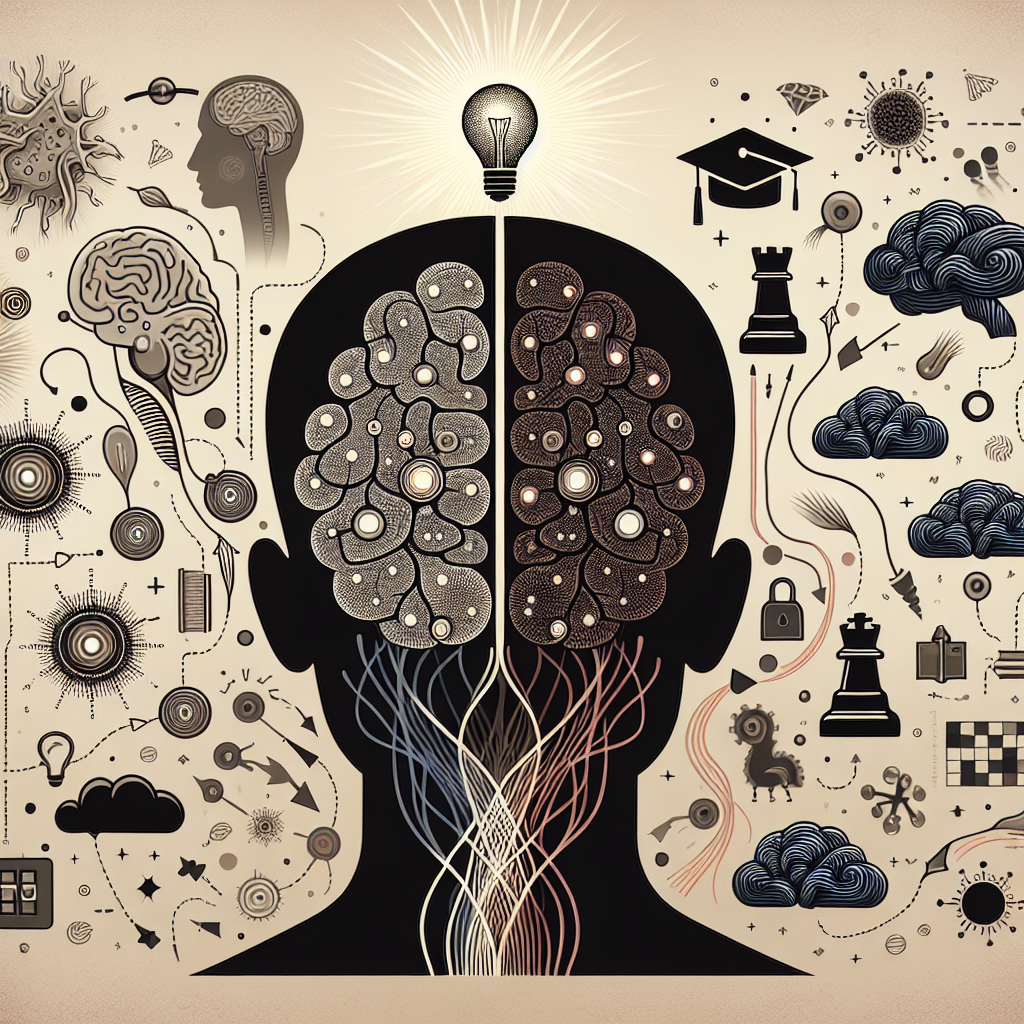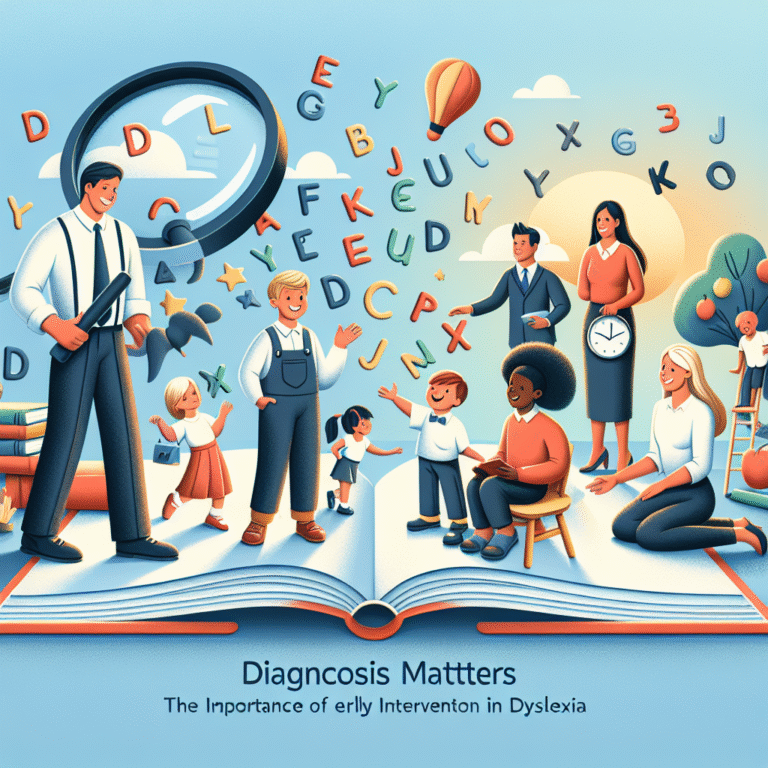
Introduction
Have you ever watched a quiz show and marveled at how some contestants seem to recall facts and figures effortlessly while others struggle? This phenomenon often boils down to one critical cognitive component: working memory. Indeed, the question arises — Brainiacs or Average Joes? How Working Memory Influences Intelligence. In an era where intelligence is often celebrated, understanding the role of working memory becomes essential to unlocking our potential.
Working memory is like the brain’s scratchpad, allowing us to store, manipulate, and process information on the fly. It plays a pivotal role in learning, problem-solving, and everyday tasks. This article delves deep into the realms of working memory and its substantial influence on intelligence, backed by studies, compelling case studies, and practical insights that you can apply to your life.
What is Working Memory?
Working memory refers to the ability to hold and manipulate information over short periods. Unlike long-term memory, which stores information indefinitely, working memory is limited in scope and time. It comprises several key elements:
- Capacity: The number of items we can hold simultaneously, typically around 7 ± 2 items.
- Duration: How long we can retain information without rehearsal, usually up to 30 seconds.
- Manipulation: The ability to process and transform information actively.
Understanding the nuances of working memory is vital to grasping how it connects with intelligence and cognitive performance.
The Interplay Between Working Memory and Intelligence
Defining Intelligence
First, to explore Brainiacs or Average Joes? How Working Memory Influences Intelligence, we must define intelligence itself. Traditionally, it covers the ability to learn from experience, solve problems, and adapt to new situations. Psychometric assessments often measure intelligence through IQ tests, which frequently prioritize working memory tasks.
Working Memory as a Predictor
Research consistently shows a strong correlation between working memory capacity and intelligence. For instance, a study conducted by Alloway and Alloway (2009) indicated that children with higher working memory scores outperformed their peers in standardized tests, revealing that working memory may be a stronger predictor of academic achievement than IQ.
Case Study 1: The Roles of Working Memory in Academic Success
In a longitudinal study involving over 1,000 students, researchers measured working memory capacities at the beginning of the school year and followed their academic performance throughout the year.
| Working Memory Capacity | Average GPA |
|---|---|
| High (≥ 5) | 3.8 |
| Moderate (3-4) | 3.0 |
| Low (≤ 2) | 2.5 |
The results demonstrated that students with higher working memory capacities consistently achieved better grades. This case study signifies how Brainiacs or Average Joes? How Working Memory Influences Intelligence can dictate academic performance.
Working Memory vs. Other Cognitive Abilities
While working memory is a substantial indicator of intelligence, it is essential to differentiate it from other cognitive abilities, such as long-term memory and processing speed. For instance, someone may have an excellent long-term memory but struggle with working memory tasks that require immediate recall and manipulation—thus affecting their overall intelligence profile.
Practical Applications in Everyday Life
Understanding the significance of working memory isn’t confined to academic realms; it stretches into adult life, impacting problem-solving, decision-making, and even social interactions.
Enhancing Working Memory
The good news is that working memory is not static. Here are several strategies to improve working memory:
Chunking: Group information into meaningful clusters. For example, when memorizing numbers, break them into smaller sets (e.g., 123456789 becomes 123-456-789).
Mind Mapping: Visual representation of information helps create associations, boosting retention and recall.
- Practice Mental Math: Performing calculations in your head enhances working memory by forcing you to manipulate numbers actively.
Real-World Scenario: The Workplace
In workplaces, employees with higher working memory can process information better, make quick decisions, and juggle multiple tasks without becoming overwhelmed. Studies show that effective managers often possess strong working memory, contributing to high-stress decision-making capabilities.
Case Study 2: Working Memory in Leadership
A corporation focused on improving team performance discovered a correlation between managers’ working memory capacity and team productivity. By assessing working memory through simple tasks, they identified specific leaders for advanced training:
| Manager’s Working Memory Level | Team Productivity Increase |
|---|---|
| High | 25% |
| Moderate | 10% |
| Low | 5% |
This case study illustrates how working memory directly influences intelligence and overall workplace efficiency.
The Role of Age in Working Memory
Developmental Changes
Working memory develops as we age, peaking in young adulthood, and gradually decreases with age.
| Age Group | Working Memory Capacity |
|---|---|
| Children (5-12) | Moderate |
| Teenagers (13-19) | High |
| Adults (20-30) | Highest |
| Older Adults (65+) | Low |
This decline often affects decision-making and problem-solving abilities in older adults.
Cognitive Training Opportunities
Many programs designed for older adults focus on enhancing working memory and cognitive function, thus addressing age-related declines. Engaging in challenging mental activities, such as puzzles or memory games, should be encouraged.
Working Memory and Its Social Implications
The Social Aspect of Intelligence
Intelligence is not just about academic prowess; it extends to social and emotional intelligence as well. Working memory fosters effective communication skills, negotiation tactics, and the ability to empathize—critical components in navigating social landscapes.
Case Study 3: Working Memory and Interpersonal Skills
A study evaluated the working memory of adults participating in team-building exercises. Participants were divided into groups based on their working memory capacity:
| Working Memory Level | Interpersonal Skill Rating |
|---|---|
| High | 9.0/10 |
| Moderate | 7.0/10 |
| Low | 5.0/10 |
Results indicated a clear link between working memory and effective social interactions, underscoring the integral role of working memory beyond intellectual ability.
The Future of Working Memory Research
As we aim to answer the question Brainiacs or Average Joes? How Working Memory Influences Intelligence, it is clear the future of research will continue to unveil deeper insights. New technologies, such as neuroimaging, are unveiling how working memory functions at a neural level, providing clarity on its role in intelligence and human behavior.
Emerging Strategies
Cognitive Behavioral Therapy (CBT): Using CBT to reduce anxiety can help improve working memory, thereby influencing intelligence positively.
Neuroscience & Tech: Advances in neurofeedback are being utilized to enhance working memory training approaches.
- Gamification: The rise of educational apps aimed at boosting cognitive performance reflects an innovative approach to enhancing working memory.
Conclusion
In answering Brainiacs or Average Joes? How Working Memory Influences Intelligence, the exploration is profound and multi-faceted. From the classroom to the boardroom, working memory significantly shapes how we think, learn, and interact.
Whether you identify as a brainiac or an Average Joe, the insights gleaned from this article highlight that working memory is crucial for personal and professional development. By implementing targeted strategies to enhance our working memory, we can unlock our full potential. So, the next time you find yourself faced with a challenge, remember: it’s not just about being intelligent; it’s about how well you manage that intellect.
Frequently Asked Questions
1. What is the difference between working memory and short-term memory?
Working memory includes the ability to manipulate and process information actively, while short-term memory refers to the passive storage of information for brief periods.
2. Can working memory training improve my intelligence?
Yes, various studies suggest that targeted working memory training can enhance cognitive abilities and may lead to improvements in overall intelligence.
3. Are there specific exercises to boost working memory?
Yes, exercises like puzzles, mental math, and memory games can effectively stimulate and improve working memory capacity.
4. How does age affect working memory?
Working memory capacity peaks in young adulthood and tends to decline with age, affecting cognitive performance and decision-making skills in older adults.
5. Can lifestyle factors influence working memory?
Yes, factors such as sleep, nutrition, physical activity, and stress management play crucial roles in maintaining and improving working memory capacity.
Through this journey into the captivating interplay between working memory and intelligence, we empower ourselves to become more mindful of our cognitive habits. Each step taken towards enhancing working memory brings us closer to becoming our best selves — whether as brainiacs or Average Joes.












